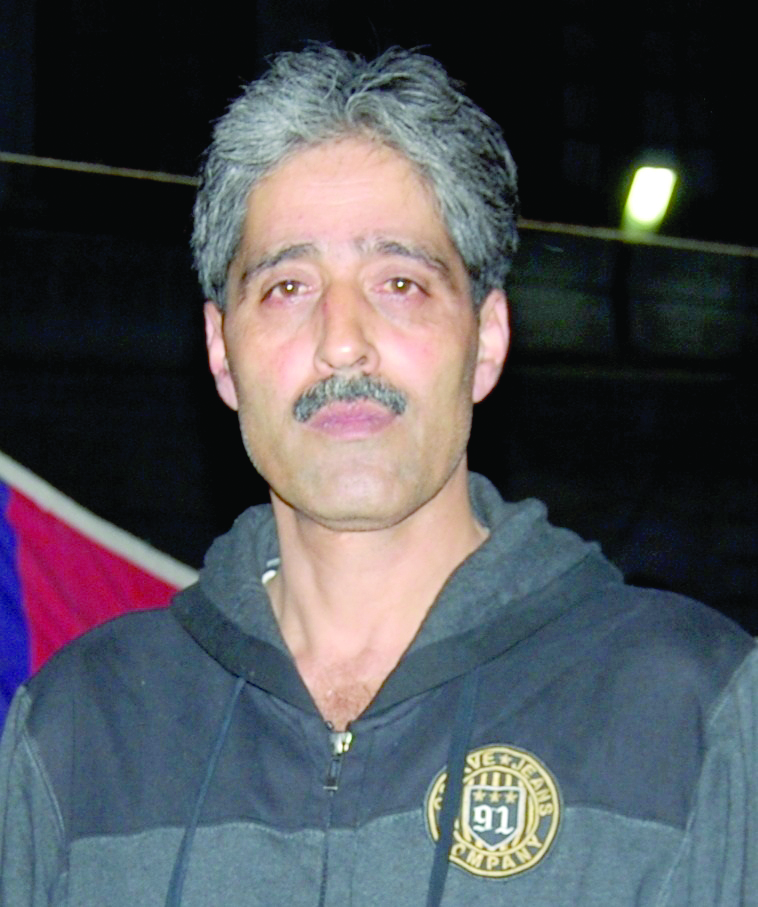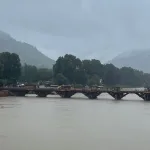In the quiet alleys of Kashmir’s ancient villages, where fading shrines whisper the stories of a forgotten past, one man has spent over three decades preserving a culture at risk of being lost to time.
Chander M Bhat, 65, a native of Murran village in south Kashmir’s Pulwama district, has dedicated the past 36 years to documenting the rich cultural heritage of Kashmiri Pandit villages. His mission: to ensure the soul of a civilization is not erased by conflict or neglect.
What began in October 1990 as a solitary quest has grown into an extraordinary journey that has taken Bhat to 671 villages across the Kashmir Valley. With painstaking travel, in-depth interviews, and meticulous documentation, he is currently compiling a six-volume magnum opus titled “OAL (Nest)”, each volume exceeding 3,000 pages.
“When I started, Kashmir had only six districts. I visited each one, collecting details about every Pandit village I could find,” Bhat told Rising Kashmir, his eyes reflecting a mix of pride and purpose.
A former Assistant Director of Postal Services in J&K, Bhat retired from India Post in 2021. Since then, he has devoted himself fully to completing the final stretch—about 20 percent—of his monumental documentation project.
At the heart of “OAL” is a comprehensive portrayal of each village: its customs, rituals, oral histories, spiritual sites, economy, and daily life.
“I document the composite culture with a focus on Pandits,” he said, highlighting his commitment to inclusive historical narratives.
Bhat’s work has also led to the documentation of nearly 700 shrines and temples, breathing new life into sacred spaces that might otherwise have slipped into oblivion.
An accomplished author, Bhat has written 19 books to date. His titles include Murran …My Village, Kashmir…Origin and History, Fading Faces, Ocean by Drops, Kapal Mochan, Village Ladhu…A Village of My Dreams, Kashmiri Pandits…Culture, Heritage and Traditions, and Kashmir Temples and Shrines.
His upcoming book, Boni Bagh, currently in press, recounts over 100 true stories from Kashmir, adding another dimension to his vast literary canvas.
With themes that span the spiritual, historical, poetic, and deeply personal, Bhat’s works offer a rare, nuanced insight into the Kashmiri Pandit identity and the Valley’s composite heritage.
His efforts have not gone unrecognized. He was awarded the Padma Shri Shri Moti Lal Saqi Gaurav Samman in 2015 for his contributions to Hindi poetry, the Kirti Samman in 2016 for his extensive work on Kashmir’s temples, and the Sri Sharda Stabadi Samman in 2022 for his acclaimed Hindi work Sarnarthi Apnay Desh Main.
Now, as he nears completion of what may be the most comprehensive archive of Kashmiri Pandit village life ever compiled, Chander M Bhat remains driven not by accolades—but by a quiet urgency to preserve memory, identity, and belonging for generations yet to come.








